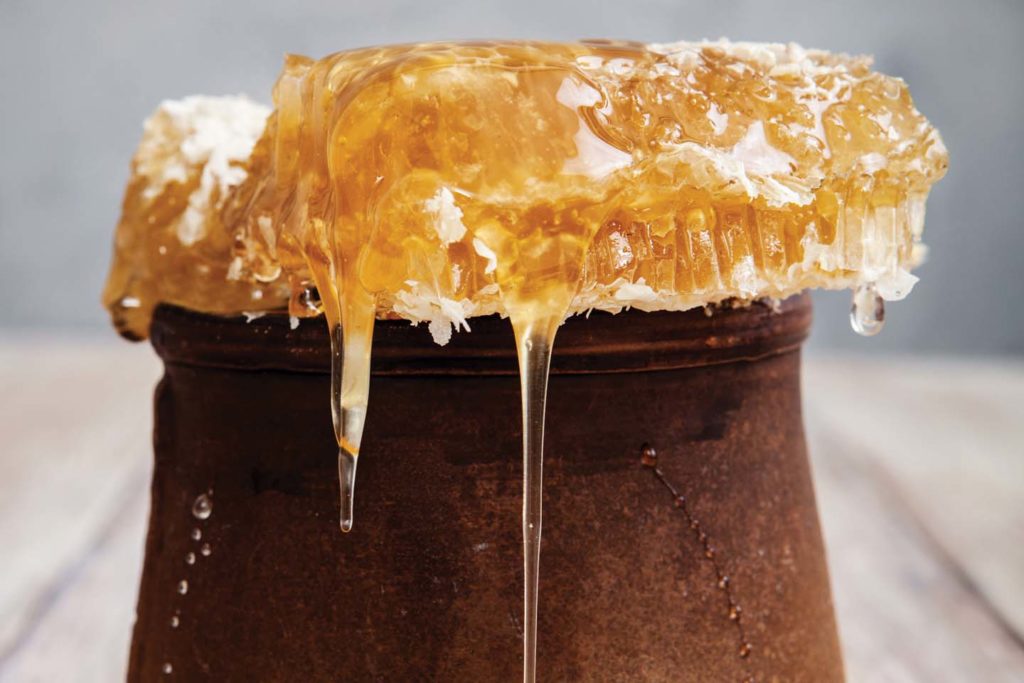This Sweet Condiment Will Surprise You
Honey has long been touted a natural remedy for countless ailments. But while some of the claims are supported by years of research, others are misconceptions carried down through generations. Additionally, honey contains some amazing health benefits and medical uses that don’t receive their due attention. Let’s talk about the ways this luscious, drizzly condiment might really surprise you.
It’s No Healthier Than Sugar.
Honey has been dubbed a “healthier alternative to sugar,” but the truth is, it’s actually higher in calories and carbohydrates per serving than sugar. It also contains higher fructose levels – but there are two sides to this coin. A possible explanation for honey’s rumored weight loss attributions may lie in the fact that fructose has a sweeter taste than sugar, potentially causing people to consume it in smaller amounts.
It Conquers a Cough.


Multiple studies have confirmed that, especially in children, honey is the gold standard for suppressing night-time coughs associated with upper respiratory infections. In multiple cases, it even beat out the most common active ingredient in over the counter cough meds – dextromethorphan.
Allergies Are on Their Own.
Surprise! The countless claims of local honey helping allergy sufferers conquer their congestion are actually a little sticky. While numerous people swear by the benefits of ingesting local-pollen-produced honey to build your body’s tolerance against nearby allergens, there’s very little lab-testing to support this theory. But don’t let that stop you from enjoying your usual spring-time syrup, it has plenty of other benefits!
Look Out Aloe!
Honey has been used to help treat burns and other skin conditions since ancient times, and the research is around to support it. In numerous studies, honey has been found to stimulate tissue growth, act as an effective wound cover, and even treat antibiotic-resistant bacteria. It contains antimicrobial properties, helping to prevent infection and even sterilize infected wounds. It also reduces burn healing time and can effectively treat long-term ulcers. It’s so useful for treating topical burns and wounds that providers practice with medical grade honey.
How Can I Choose the Best Honey?
Honey can vary greatly, depending on where it originates, how it’s processed, and what its main pollen sources are. Generally speaking, the healthier honey choices will be less processed and darker in color. If you find dark, raw honey that is locally produced and relatively fresh, it will likely contain more antioxidants than a light-colored, processed, store bought variety. Manuka honey is the standard base for medical grade honey.

